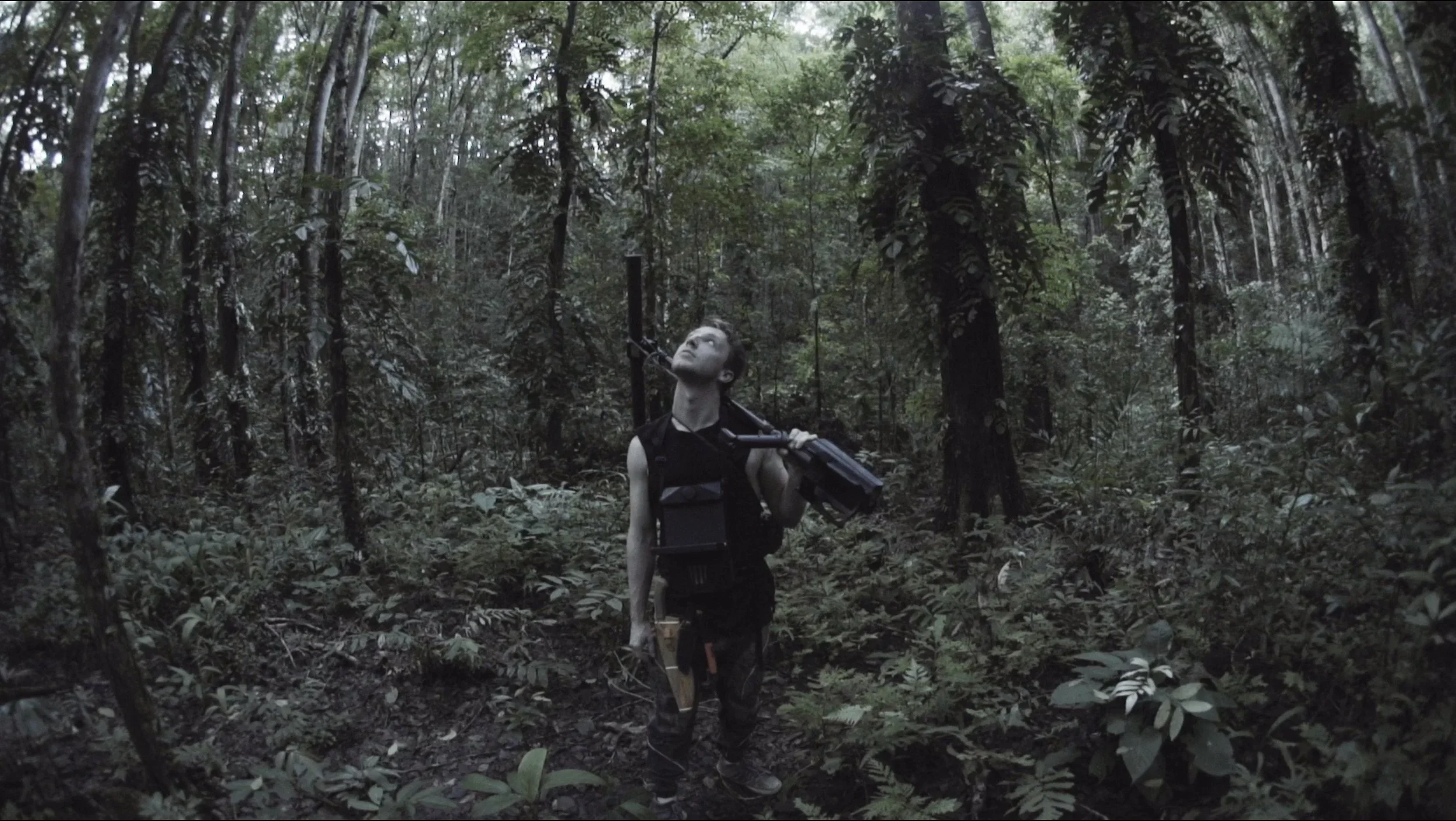‘Inshallah a Boy’ REVIEW: A Widow’s Struggle for Agency in Patriarchal Jordan
‘Inshallah a Boy’ REVIEW: A Widow’s Struggle for Agency in Patriarchal Jordan
Mother and daughter, Nawal (Mouna Hawa) and Nora (Seleena Rababah) sharing an embrace in Inshallah a Boy
Inshallah a Boy is a stirring social realist drama starring Palestinian actress Mouna Hawa, and co-produced by Jordan, Saudi Arabia, Egypt, Qatar, and France. It is the debut film of Ajmad Al Rasheed and it premiered at the Cannes Film Festival in 2023. It was selected as Jordan’s entry to the following year’s Academy Awards, but it did not make the final list of nominees. It lucidly exposes the difficulties of being a woman in the predominantly patriarchal society of Jordan, in a similar way that the films of Jafar Panahi and Asghar Farhadi have done for contemporary Iran.
The film is set in present-day Amman, and it follows Nawal (Mouna Hawa), a woman who has to deal with the consequences of her husband’s sudden death. Unbeknownst to her, he had left behind a series of unpaid debts to his brother, Rifqi (Haitham Alomari), who is now in a hurry to collect what he is owed. In addition to the unpaid installments of debt, there is also the issue of inheritance. In Jordanian society, if a man has no male heirs, his assets must be split equally between his wife and his remaining siblings. Since Nawal only has one daughter, Nora (Seleena Rababah), Rifqi is determined to take half of what the country’s laws assert is his right.
There are only two major assets to her husband’s name: the apartment she lives in with her daughter, and his pick-up truck. He plans to sell them and take half of the profits. If Rifqi gets what he wants, she will not only lose a place to live in, but will likely also lose custody to her own daughter, as her reduced financial situation could justify an incapacity to raise a child. And he’s willing to take her to court for all of this.
Nawal (Mouna Hawa) and Nora (Seleena Rababah) having a meal in the privacy of their apartment
Nawal doesn’t have many options. While her husband was alive she was already the backbone keeping her household intact. She had been working at an upper-middle class Christian home as a nurse to a deteriorating Alzheimer’s patient, who she’d feed, bathe, and clothe. Her salary is just enough to keep her family afloat, but not enough to pay off her husband’s outstanding debts. When she goes to his former workplace to ask for his remaining pay and benefits, she finds out that he had apparently already left his job four months prior, and on bad terms too. A dead end. She is determined to pay off the debts anyway she can, but the inheritance issue is an even larger structural hurdle to overcome. There’s only one way out: she needs to show the courts that she is pregnant, that she has the possibility of having a son soon, an heir to his father’s estate. Inshallah a boy.
The film’s storytelling is remarkably simple and efficient, without any waste in its runtime. It is consistently compelling without ever being confusing. Every shot in the film hones in on its themes like a tightly-wound play. There’s an almost gracefulness to Nawal’s descent, with each succeeding section of the film plunging her ever-deeper into despair. Mouna Hawa is excellent in the lead role. Without her powerful performance, the film could have easily fallen into overbearing melodramatic clichés. But there’s just such a piercing ferocity to her eyes that lets us know that this is all real. That the world needs to know about these realities.
Nawal (Mouna Hawa) in an argument with her brother, Ahmad (Mohammed Al Jizawi)
The film is ultimately about a woman’s struggle for agency in a society that values the humanity of men over women. All she desires is normalcy, to be able to continue to do her job and take care of her daughter. But it is her husband’s past actions, his failures, that in his death threaten to destroy her family’s life. Her current responsibility is to manage the burdens of her husband’s irresponsibilities. And little sympathy is shown from the men in her life towards her situation, even from her own brother, Ahmad (Mohammed Al Jizawi).
In one harrowing scene, Nawal storms the night streets of Amman looking for her daughter. Rifqi had taken her to his home after school and kept her there without her mother’s permission. It seems that in their society, women are not normally permitted to be out of the home alone at night, and so, when Ahmad finds out where she’d been, he berates her for leaving the home and threatens to break her legs if she tries to do so again.
It’s almost as if losing a husband has degraded her to a sub-human. An aging woman without a husband, without a son, with dwindling prospects of future suitors, is treated as barely a human at all. In the eyes of her society, the loss of her husband made her lose her own value as well, regardless of the actual material value she provided to her household. It doesn’t matter to anyone that for all intents and purposes, she was the family’s breadwinner. For all the men in the film, she’s just a helpless widow who needs to return to a position of property, of being under the jurisdiction of a new man. Until then, she is expected to relinquish all her agency and return to the fate so many women are destined to in her society, a fate of helpless passivity.
She struggles against these forces in society. She struggles against the men in her life who try to belittle her sense of agency and responsibility. She fiercely argues for her rights in court. She finds ways to solve her legal issues on her own terms. But at the end of the day, what she really needs is a miracle. The miracle of a child, of a boy, of the possibility of raising a future man.
Nawal (Mouna Hawa) holding on to her daughter Nora (Saleena Rababah) on the bus
Apart from learning more about the patriarchal legal system in Jordan, we also get glimpses of other issues, such as that of the stigmas on abortion, the relations between economic classes, and the differences between Christian and Muslim morality. None of it feels too didactic, although one may note that nearly every man in the film is depicted as cruel, mean-spirited, or selfish. It’s surely meant to represent a certain section of Jordanian society, but the lack of even one male character with redeeming qualities gives the film an almost too dour glow.
But perhaps that’s just what happens when holy law gives preference to the rights of men over women. One must remember, however, not to immediately assume that this is the case for all women in Muslim societies. It is in this sense, and in this seeming lack of nuance, that the film may hinder a more comprehensive understanding of the complexities of relations between the sexes in Islamic societies. But to be fair to the film, it never presents itself as wholly representative. The only way to remedy our ignorances, as an audience, is to therefore see more films from the Middle East, a region of the world sorely underrepresented in contemporary cinema discourse.
Inshallah a Boy is a great film to watch in order to gain a better understanding of life in Jordan, a country that borders the Palestinian West Bank. Although they’ve had more co-productions in the last few years with different countries in the region, including Palestine, very few of them have actually been set in Jordan itself. As the region is getting more destabilized by the day, it’s important for us as a global film community to also support their cinema. We need to listen to the stories they tell, for it is through this simple act that we can more deeply connect to their humanity.
‘Inshallah a Boy’ is available to rent on Amazon Prime Video.

















